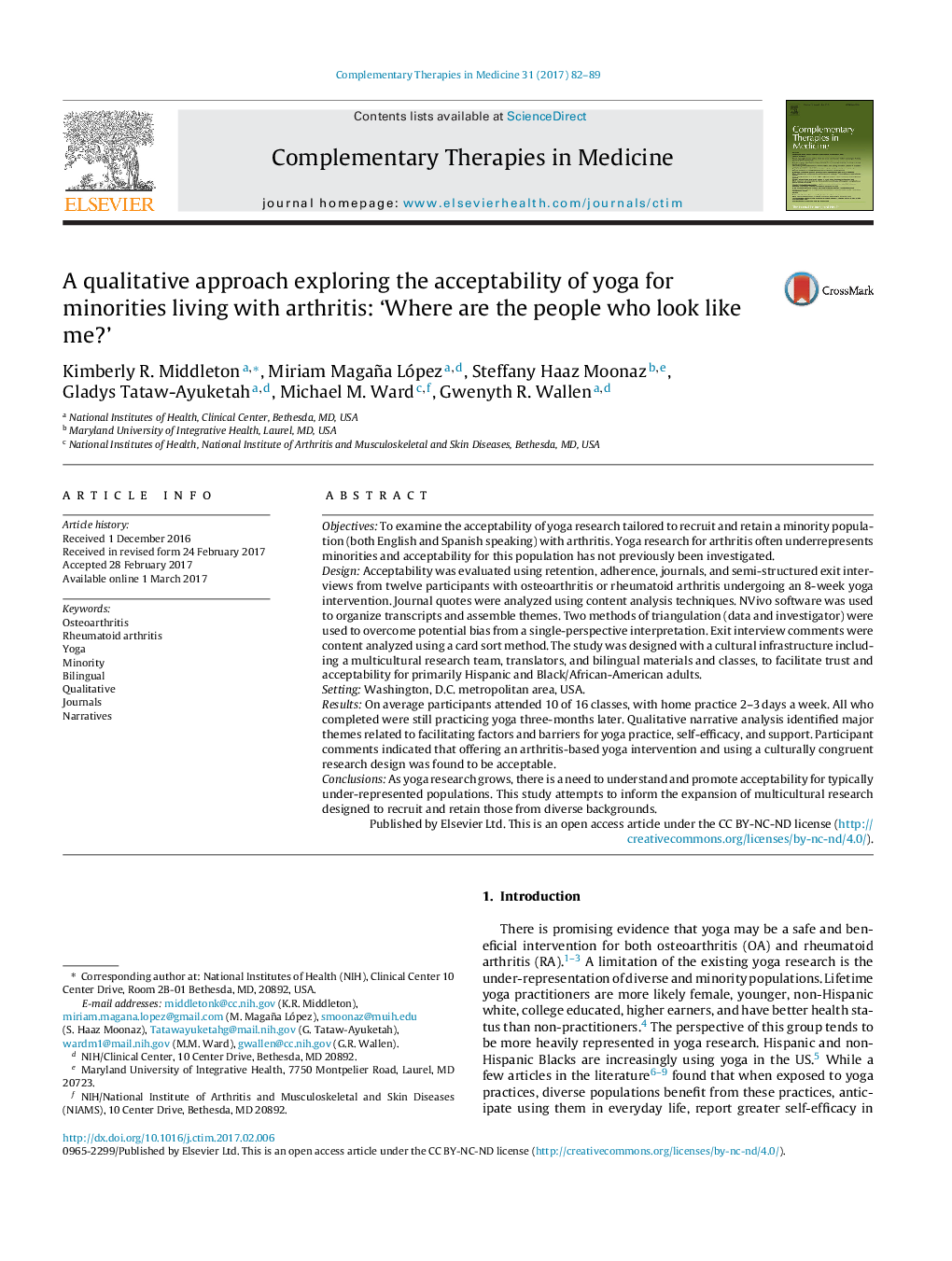| کد مقاله | کد نشریه | سال انتشار | مقاله انگلیسی | نسخه تمام متن |
|---|---|---|---|---|
| 5565254 | 1563203 | 2017 | 8 صفحه PDF | دانلود رایگان |
- Yoga research for arthritis often underrepresents minorities.
- A culturally-based research design facilitated trust/acceptability for minorities.
- Acceptability was evaluated using journals and semi-structured exit interviews.
- All who completed were still practicing yoga three-months later.
- Qualitative analysis identified themes related to facilitating factors and barriers.
ObjectivesTo examine the acceptability of yoga research tailored to recruit and retain a minority population (both English and Spanish speaking) with arthritis. Yoga research for arthritis often underrepresents minorities and acceptability for this population has not previously been investigated.DesignAcceptability was evaluated using retention, adherence, journals, and semi-structured exit interviews from twelve participants with osteoarthritis or rheumatoid arthritis undergoing an 8-week yoga intervention. Journal quotes were analyzed using content analysis techniques. NVivo software was used to organize transcripts and assemble themes. Two methods of triangulation (data and investigator) were used to overcome potential bias from a single-perspective interpretation. Exit interview comments were content analyzed using a card sort method. The study was designed with a cultural infrastructure including a multicultural research team, translators, and bilingual materials and classes, to facilitate trust and acceptability for primarily Hispanic and Black/African-American adults.SettingWashington, D.C. metropolitan area, USA.ResultsOn average participants attended 10 of 16 classes, with home practice 2-3Â days a week. All who completed were still practicing yoga three-months later. Qualitative narrative analysis identified major themes related to facilitating factors and barriers for yoga practice, self-efficacy, and support. Participant comments indicated that offering an arthritis-based yoga intervention and using a culturally congruent research design was found to be acceptable.ConclusionsAs yoga research grows, there is a need to understand and promote acceptability for typically under-represented populations. This study attempts to inform the expansion of multicultural research designed to recruit and retain those from diverse backgrounds.
Journal: Complementary Therapies in Medicine - Volume 31, April 2017, Pages 82-89
